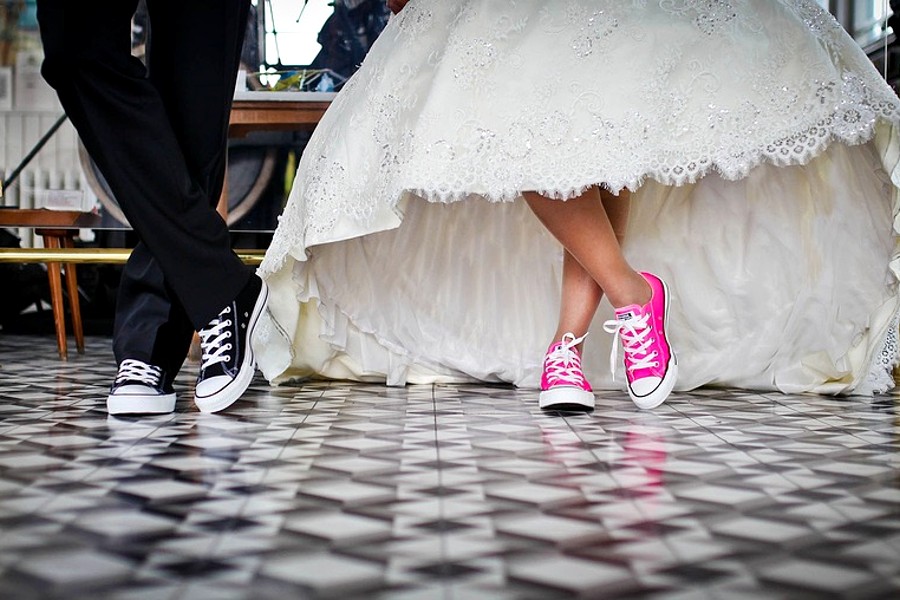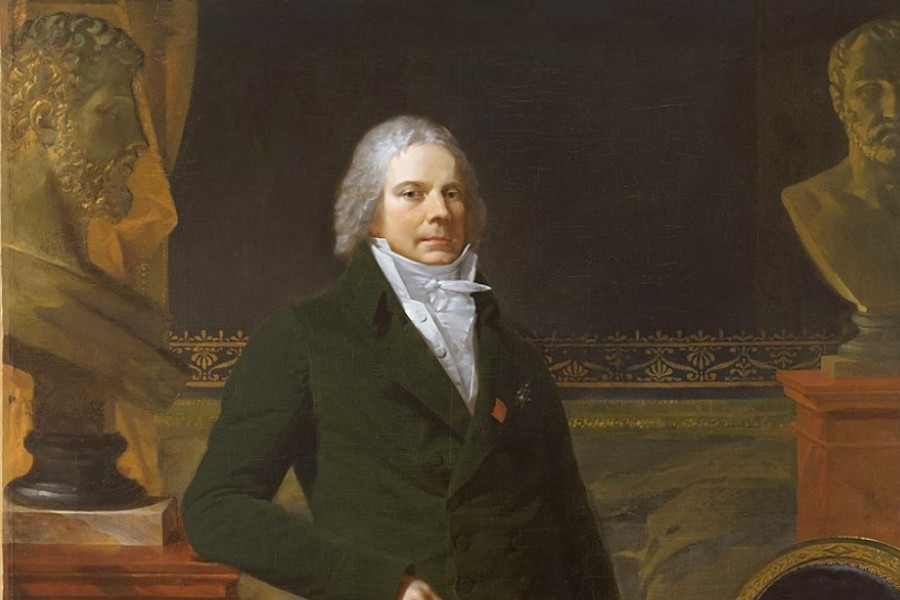
The Studio Museum in Harlem will present Pass Carry Hold: Studio Museum Artists in Residence 2023–24, the latest edition of its annual Artist-in-Residence exhibition.
The show continues from September 26, 2024, through February 10, 2025, at MoMA PS1. Featuring new work by artists sonia louise davis, Malcolm Peacock, and Zoë Pulley, the 2023–24 cohort of the Studio Museum’s foundational residency program, this exhibition is the sixth presentation as part of a multiyear collaboration between the Studio Museum in Harlem, The Museum of Modern Art, and MoMA PS1.
Exploring cycles of transition and transfer, the artists in Pass Carry Hold reference how ancestral and intuitive knowledge are activated through that which is passed on, carried forward, and held onto. With practices spanning sound, textile, and installation, davis, Peacock, and Pulley engage sensorial modes of making. Here, materials serve as both symbol and method. Family photographs, hand-braided hair, and soundscapes call attention to daily practices of caring for others through record-keeping and storytelling traditions. As much about process as finished objects, the works on view reveal the traces of their becoming. Through methods of sewing, embroidery, braiding, and tufting, the artists query how forms of quotidian labor, which often function to fulfill basic needs, can also serve as acts of care and creative expression. In Pass Carry Hold, these artists pose that time itself is a material; its mark on the work, however undefined, is an invitation to slow down, bear witness, and stay a while.
Thelma Golden, Director and Chief Curator of the Studio Museum in Harlem, said, “It has been a joy to witness this year’s artists in residence, sonia louise davis, Malcolm Peacock, and Zoë Pulley, as they have evolved their practices over the past year. Each artwork in Pass Carry Hold serves as a testament to the profound ways Black material culture informs and preserves a collective memory. My deep appreciation goes to MoMA PS1, our institutional partner over the last few years, whose continued collaboration makes this exhibition possible.”
Committed to radical softness, sonia louise davis uses visual art, writing, and musical performance to channel wonder, experimentation, and play. With a background in jazz performance, davis employs improvisational approaches in her use of vibrant colors, organic gestures, and musical interventions, all of which participate in a longstanding tradition of Black feminist abstraction. At MoMA PS1, davis presents an immersive audio work, wall painting, and five textile-based works that she terms “soft paintings,” in which tufted curls, dots, rings, and other shapes emerge from and dance across the canvases. Exhibiting her textiles on free-standing supports, davis crafts pathways through the gallery that weave audiences in and out of abstract color- and soundscapes.
Malcolm Peacock works across performance, audio, and sculpture to explore Black subjectivity and the spatial politics that govern Black mobility within natural and built environments. Peacock’s practice is largely informed by his longstanding commitment to running, an activity that carries a complex history as it relates to Black people. Reflecting on the physical and psychological experience of long-distance running and sacred connections to nature, the artist will exhibit a sculpture-and-audio work in the form of a redwood tree trunk covered in thousands of handmade synthetic hair braids. Intimate and expansive, Peacock’s installation meditates on how access to nature remains racialized, the corporeal endurance that braiding and running demand, and the contemplation of time amid loss and healing.
Zoë Pulley looks to “stuff” as a holder of individual and collective Black memory. Through a design-based practice, Pulley excavates meaning from the seemingly mundane to reveal hidden histories. For this installation, the artist and maker offers an intimate portrait of her family, incorporating sculpture, audio, repeating patterns, and found objects that together form a familiar kitchen space. In looking at this space as a site where thoughts and dreams are spoken aloud or kept quiet, Pulley revisits familial histories and tends to the memories embedded in personal objects, revealing stories that might not be readily seen.
To celebrate the opening of Pass Carry Hold, a roundtable discussion with the artists in residence—sonia louise davis, Malcolm Peacock, and Zoë Pulley—will be held at MoMA PS1 on October 19, 2024. In a conversation moderated by Yelena Keller, Assistant Curator, Studio Museum in Harlem, the artists will discuss work created over the course of the residency program. This program is free and open to the public as part of MoMA PS1’s Open House.
Pass Carry Hold: Studio Museum Artists in Residence 2023–24 is organized by Yelena Keller, Assistant Curator, Studio Museum in Harlem; and Jody Graf, Assistant Curator, MoMA PS1; with Adria Gunter, Curatorial Assistant, Studio Museum in Harlem.
As the Studio Museum prepares to open its new building, it is actively reshaping the timeline for the next cohort of the Artist-in-Residence program. More details will be made available soon.
- God’s Love We Deliver Joins Melba Wilson For Special Thanksgiving Turkey Giveaway In Harlem
- Unlocking Business Growth With Strategic SEO Practices
- How To Boost Instagram Story Views Effectively
- The Pros And Cons Of Major Types Of Grills
- Los Angeles: Yuletide Cinemaland, A Festive Celebration Of Holiday Spirit
sonia louise davis (b. 1988, New York City) is a visual artist, writer, and performer. Her work is deeply invested in improvisation as embodied research. davis has presented her work at the Whitney Museum of American Art; the Queens Museum; ACRE; Sadie Halie Projects; Ortega y Gasset; and Artists Space; among other venues. Residencies and fellowships include the Laundromat Project’s Create Change Fellowship; Civitella Ranieri; New York Community Trust Van Lier Fellowship at the International Studio & Curatorial Program; Culture Push Fellowship for Utopian Practice; Lower Manhattan Cultural Council’s Workspace Artist in Residence Program; Studio Immersion Project Fellowship at the Robert Blackburn Printmaking Workshop; Right Now Artist Publication Grant from Women’s Studio Workshop; and Stoneleaf Retreat. She is an honors graduate of Wesleyan University (BA, African American studies) and an alumna of the Whitney Independent Study Program. davis lives and works in Harlem.
Malcolm Peacock (b. 1994, Raleigh, NC) is an artist and athlete whose art often utilizes and alternates common physical actions—talking, gazing, braiding, singing, running—to emphasize the stakes and feelings that accompany being present in proximity to others and to oneself. His art looks closely at ways that intimacy creates emotional spaces occupied by Black folks. He has participated in residencies at the University of Pennsylvania; St. Roch Community Church; the Joan Mitchell Center; Denniston Hill; and the Skowhegan School of Painting & Sculpture. Peacock has exhibited at Artists Space; Terrault Gallery; the Institute of Contemporary Art at Virginia Commonwealth University; the Prospect Triennial; and the Carnegie Museum of Art. Peacock is the recipient of the 58th Carnegie International Fine Prize and the Foundation for Contemporary Arts Roy Lichtenstein Award. He earned a BFA from Virginia Commonwealth University in 2016 and an MFA from the Mason Gross School of Arts at Rutgers University in 2019.
Zoë Pulley (b. 1993, Chicago) is a designer and maker who utilizes stuff to surface the seemingly ordinary stories of Black folks through mixed media, typography, and audio. She defines “stuff” as artifacts both physical and nonphysical that may be relegated as unimportant to some—as merely stuff. Most recently, Pulley has shown work in a group exhibition, Dress Code, at the Newport Art Museum and in a performance at RISD Museum. Her practice includes ongoing collaborations such as a wearable line inspired by her grandmother called GRAN SANS and a collectively authored publication titled Black Joy Archive. In 2021 she designed a zine for Combahee’s Radical Call: Black Feminisms (re)Awaken Boston at the Boston Center for the Arts. Her work is held in the collections of the Valentine Museum; the Harvard Radcliffe Institute; and Printed Matter. Pulley is an inaugural recipient of the Rhode Island School of Design Society of Presidential Fellows and was awarded the Graduate Graphic Designer to Watch by GDUSA in 2023. She earned a BFA from Virginia Commonwealth University in 2015 and an MFA in graphic design from Rhode Island School of Design in 2023.
Support for the Artist-in-Residence Program
The Studio Museum in Harlem’s Artist-in-Residence program is funded by the Glenstone Foundation. Additional support for the Artist-in-Residence program provided by the American Express Kenneth and Kathryn Chenault Sponsorship Fund; National Endowment for the Arts; Joy of Giving Something; Doris Duke Charitable Foundation; Jerome Foundation; Anonymous; Milton and Sally Avery Arts Foundation; and by endowments established by the Andrea Frank Foundation; the Jacob and Gwendolyn Knight Lawrence Trust; and Rockefeller Brothers Fund. Additional funding is generously provided by the New York City Department of Cultural Affairs and New York State Council on the Arts.
The Artist-in-Residence Program
The Studio Museum’s foundational Artist-in-Residence program gives emerging artists of African and Afro-Latinx descent an unparalleled opportunity to develop their practice in an eleven-month residency and offers audiences the chance to view this work in an annual culminating exhibition. Alumni of the program, who now number nearly 150, include some of today’s most significant and innovative artists, including Njideka Akunyili Crosby, Jordan Casteel, Lauren Halsey, David Hammons, Maren Hassinger, Titus Kaphar, Simone Leigh, Kerry James Marshall, Julie Mehretu, Wangechi Mutu, and Mickalene Thomas.
The Studio Museum in Harlem
Founded in 1968 by a diverse group of artists, community activists, and philanthropists, the Studio Museum in Harlem is internationally known for its catalytic role in promoting the work of artists of African descent. The Studio Museum is now constructing a new home at its longtime location on Manhattan’s West 125th Street. The building—the first created expressly for the institution’s program—will enable the Studio Museum to better serve a growing and diverse audience, provide additional educational opportunities for people of all ages, expand its program of world-renowned exhibitions, effectively display its singular collection, and strengthen its trailblazing Artist-in-Residence program. While closed for construction, the Studio Museum’s groundbreaking exhibitions, thought-provoking conversations, and engaging art-making workshops continue at a variety of partner and satellite locations in Harlem and beyond. For more information, visit studiomuseum.org.
MoMA PS1
MoMA PS1 champions art and artists at the intersection of the social, cultural, and political issues of our time. Providing audiences with the agency to ask questions, access to knowledge, and a forum for public debate, PS1 has offered insight into artists’ diverse worldviews for more than 40 years. Founded in 1976 by Alanna Heiss, the institution was a defining force in the alternative space movement in New York City, transforming a nineteenth-century public schoolhouse in Long Island City into a site for artistic experimentation and creativity. PS1 has been a member of New York City’s Cultural Institutions Group (CIG) since 1982 and affiliated with The Museum of Modern Art since 2000.
Photo credit: From left to right: Artists in residence Malcolm Peacock, Zoë Pulley, and sonia louise davis. Photo: Courtney Sofiah Yates.
Become a Harlem Insider!
By submitting this form, you are consenting to receive marketing emails from: . You can revoke your consent to receive emails at any time by using the SafeUnsubscribe® link, found at the bottom of every email. Emails are serviced by Constant Contact








